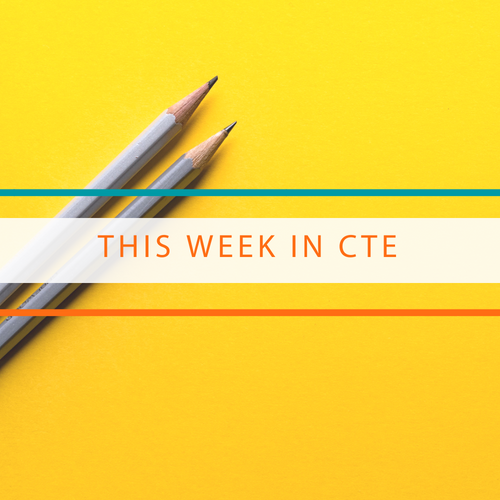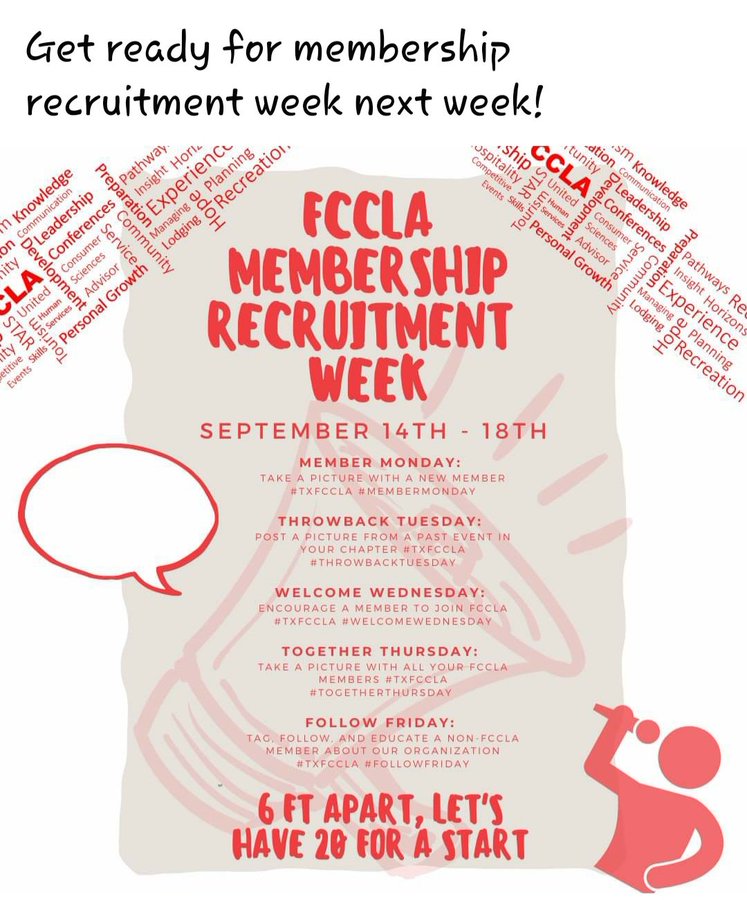
The “Getting to Know” blog series will feature the work of State CTE Directors, state and federal policies, innovative programs and new initiatives from the Advance CTE staff. Learn more about each one of these topics and the unique contributions to advancing Career Technical Education (CTE) that Advance CTE’s members work on every day.
Meet Jeran Culina! Jeran serves in the role of Senior Policy Associate for Advance CTE, supporting state policy and technical assistance work. Jeran’s work has a focus on supporting states and communities to create, share, use and manage information about national efforts to expand high-quality and equitable career pathways. She also supports the development of policy tools and resources leveraged by state and local leaders, national partners and other key stakeholders to help ensure each learner has access to supports, resources and skills needed to be successful in the careers of their choice.
Q: What is the New Skills ready network initiative and how does it inform your work at Advance CTE?
A: New Skills ready network is a five-year initiative, part of JPMorgan Chase’s $350 million global New Skills at Work program, which aims to improve student completion of high-quality career pathways. The six New Skills ready network sites are: Boston, Massachusetts; Columbus, Ohio; Dallas, Texas; Denver, Colorado; Indianapolis, Indiana; and Nashville, Tennessee.
A key feature of the New Skills ready network is the makeup of the leadership teams. Each site’s team brings together a cross-sector group of partners representing local school systems, two-year and four-year postsecondary institutions, intermediary organizations, industry, and state and workforce development agencies. These unique state-and-local, cross-sector leadership teams were developed to align systems; incubate innovative solutions; and ultimately, scale equitable career pathways for all learners. This piece of the New Skills ready network has been significant in informing the rest of my state policy work. It showcases the strengths and challenges that local and state partnerships bring to the table, but it also offers best practices from six local sites to better inform state policy work around engaging stakeholders, bridging secondary and postsecondary, aligning pathways, closing equity gaps, and many other areas that haven’t even been explored yet.
Q: How would the New Skills ready network define high-quality career pathways?
A: High-quality career pathways are ones that successfully prepare learners for a variety of educational opportunities while supporting effective and meaningful collaboration between secondary schools, postsecondary institutions, and employers to provide students with experience in, and understanding of, all aspects of an industry, and ensure equal access to all learners. Within the New Skills ready network, all sites are developing or expanding their definition of what high-quality career pathways means to them. For example, the Indianapolis, IN team has aligned their definition of high-quality career pathways to match the state’s new next level programs of study (NLPS) model. The shift to NLPS provides learners with:
- An increase in the consistency of CTE course offerings to ensure all CTE students have the same opportunity to learn essential skills regardless of the location they are taking a course;
- Intentionality by directly aligning secondary courses to postsecondary competencies, providing students who have discovered their passion the opportunity to earn more postsecondary credentials and make progress towards postsecondary degrees while in high school; and
- Quality programs because new course standards will increase the rigor in many CTE courses and provide greater benefits to students.
Q: How can state CTE leaders leverage the work coming out of the New Skills ready network to ensure labor market information (LMI) is used to define high-skill, high-wage and in-demand career pathways?
A: States should follow the recommendations laid out in the recently released Advance CTE research brief on aligning labor market data which suggests:
- Continuing to make data-informed decisions about which career pathways to build and support and which ones to transform or phase out. In the face of major economic upheaval, while responding to real-time changes may be tempting, focusing on the longer-term trends and consulting multiple data sources and stakeholders are critical.
- Address equity within any LMI tools, supports and decisions. As states and institutions invest in their labor market systems and platforms, presenting the data with an equity lens is critical to better inform investments and arm learners with actionable information
- Take the opportunity to streamline existing labor market data to make it more usable and accessible for policymakers, local partners, instructors and learners themselves.
- Build capacity within the system to improve labor market data literacy. With the complexities of labor market data and increased frequency of the data being reviewed at the state, region and community levels, leaders at all levels — including counselors and advisers — need a better understanding of what they are looking at and how they should interpret the data to best support learners.
Q: What can we expect next from the New Skills ready network?
A: The New Skills ready network has previously released three research briefs focused on work-based learning, aligning career pathways to labor market data and state strategies for scaling early postsecondary opportunities (EPSOs) in career pathways. In the next month, expect one additional research brief on strengthening state and local partnerships. In addition to the policy briefs, the New Skills ready network team will be releasing an annual report on the lessons learned during the first year of the grant as well as snapshots of each site and the work they have accomplished. As the work progresses, we will have innovations, best practices and lessons learned from each site to share that can be adopted and scaled across the nation.
Brittany Cannady, Senior Associate Digital Media


 Developed with input from nearly 200 national, state and local education and workforce development leaders and supported by 40 national organizations,
Developed with input from nearly 200 national, state and local education and workforce development leaders and supported by 40 national organizations,  Our Mission
Our Mission


 On the federal and state levels, 2019 was an important year for Career Technical Education (CTE). In addition to creating their four-year state plans for the federal Strengthening Career and Technical Education for the 21st Century Act (Perkins V), at least 45 states and Palau enacted at least 208 policy actions related to CTE and career readiness.
On the federal and state levels, 2019 was an important year for Career Technical Education (CTE). In addition to creating their four-year state plans for the federal Strengthening Career and Technical Education for the 21st Century Act (Perkins V), at least 45 states and Palau enacted at least 208 policy actions related to CTE and career readiness.